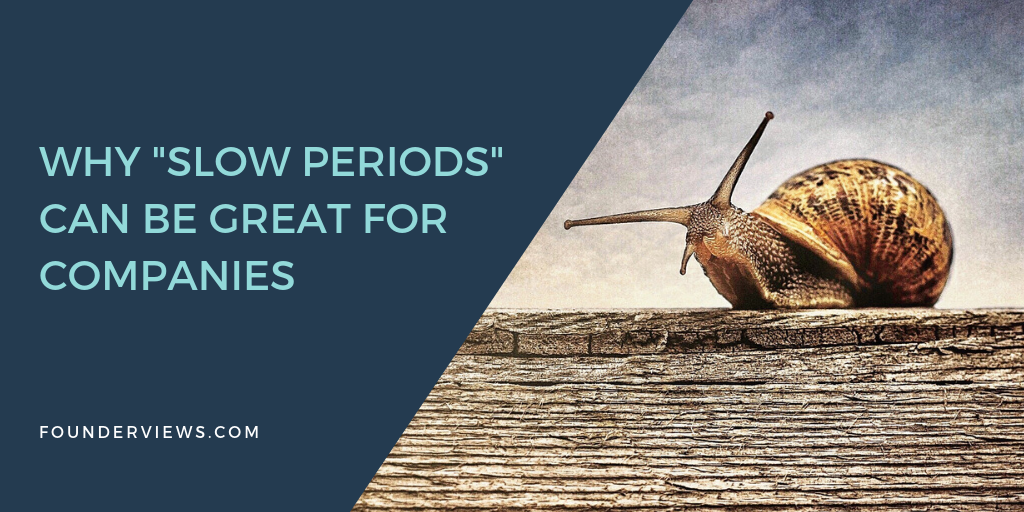Mature businesses with firm roots in the ground can buy a lot of time when going through slow growth periods or rough patches, compared to newer startups. The value of time is a true luxury and could be a major advantage for bigger companies if utilized properly.
Established companies can afford to go through sluggish stages where there’s either stagnant sales, slow growth, or even misalignment amongst the team. Mature companies can go through several months or even years before there’s even a hint of genuine going concern. Bootstrapped startups on the other hand, can only afford weeks at most before runway is dry. Startups must have the foot on the gas at all times and be laser-focused, which can be good or bad (more on that later).
What’s interesting is that these “rough patches” can actually be really good for companies. One of the main reasons why mature companies go through what seem to be “sluggish” periods, is because they are able to consciously sense a change in how the market is behaving. So what seems like a slow growth period, is actually time to regroup and figure out the best avenue to attack or pivot into. These periods give mature companies a huge advantage in order to look at a macro view of the market or industry landscape they’re playing in. It allows them to observe what’s going on in order to shift their focus and attention on forward-thinking trends or changes in the industry and move their business in that direction.
Startups on the other hand, have to be laser-focused on what their working on, and just hope they’re on the right track. The don’t have the luxury to sit back and observe the market and figure out if they’re going in the right direction. It’s basically all or nothing for startups, especially bootstrapped ones. Their visions could either work out brilliantly and lead to great success, or the opposite – failure. Most startups fail – you only hear about the very small few that pick the right track (execution has a lot to do with it too, of course).
My guess is that it’s very common for even great companies to experience these “slow periods”. You can compare these companies to sports superstars. Even the best player will never be consistently great each and every game. They will have amazing runs, average runs, and even poor runs. What separates the superstars from the mediocre players are how quick they are able to bounce back from “slow periods” and get on the gravy train.
Good working teams with great leaders will always push through these periods and eventually figure out the market direction and how to drive their business forward.
The truly special teams on the other hand, will not only figure out the market direction, but will dictate the direction of the industry for everyone else to follow.






